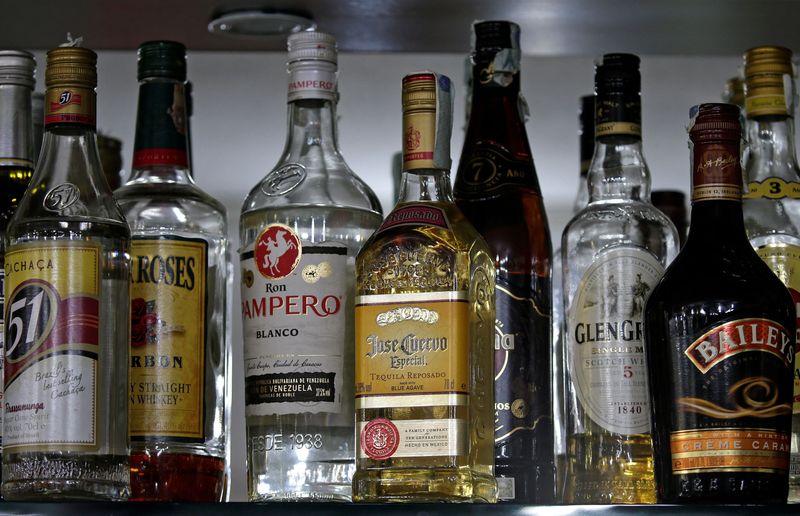By Manas Mishra
(Reuters) - Europe saw a fall in alcohol consumption in the first year of the pandemic, but that decline could reverse in coming years as the economic fallout of COVID-19 takes its toll, the World Health Organization (WHO) said on Thursday.
The WHO's European Health Report, published every three years, said that alcohol consumption decreased in Europe between 2000 and 2019.
Drinking habits changed during the pandemic and shifted alcohol consumption from bars and restaurants to home, and overall drinking fell in 2020, the report added.
But European countries were still the biggest consumers of alcohol in the world, it said.
The declines were less marked among those with low or average incomes and those experiencing distress, as well as among people who lost their jobs or had other financial worries.
"Based on past experiences, the economic downturn due to the COVID-19 pandemic will likely increase alcohol consumption levels in the coming years, especially for men and those in a low socioeconomic stratum," the report said.
The report showed that, overall, countries in the region were making progress on some global targets adopted in 2015 that are aimed at ending poverty.
For example, almost all countries in the region hade met the target for newborn and child mortality rates of less than 12 and 25 deaths per 1,000 live births, respectively.

The WHO said countries needed to prioritize the health sector and focus on issues such as mental health or risk losing the progress made since 2015.
“We have a stark choice at this juncture almost two years into the pandemic,” said Hans Kluge, WHO's regional director for Europe.